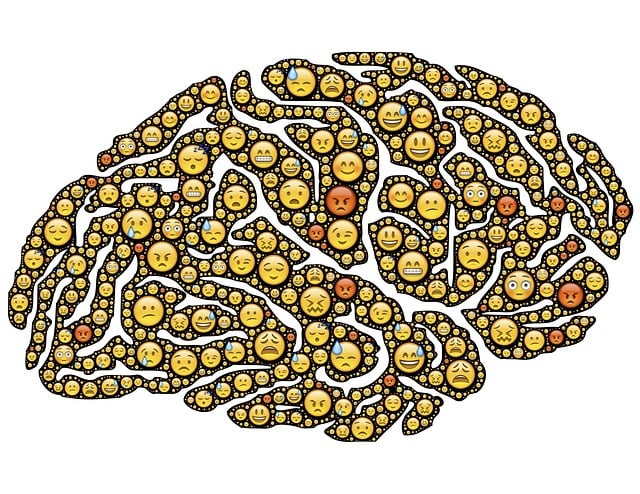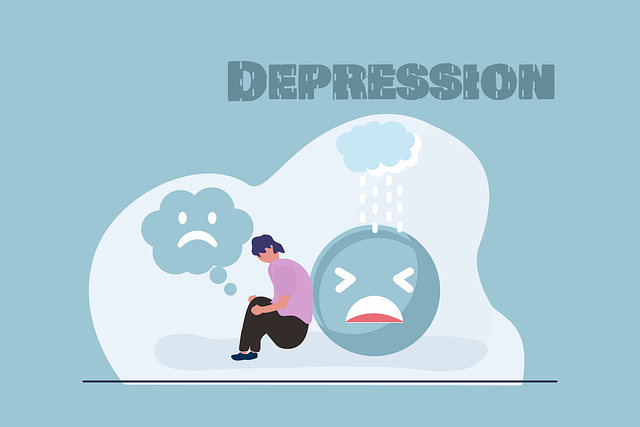Greenwood Village Divorce Therapy emphasizes the importance of coping skills in managing life transitions like divorce or separation, using evidence-based practices and cultural sensitivity. They teach clients to acknowledge and accept emotions rather than suppress them, offering personalized strategies such as creative outlets, deep breathing, and positive affirmations. This holistic approach, including early intervention, mental health education, and community support, aims to build emotional resilience, prevent burnout, and enhance long-term well-being for diverse populations through Greenwood Village Divorce Therapy's comprehensive services.
Coping skills are essential tools for navigating life’s transitions and stressors. This article explores the significance of these skills, offering insights into how they can empower individuals during challenging times. We delve into identifying personal coping strategies, the therapeutic benefits of learning effective mechanisms, and building resilience proactively.
Greenwood Village Divorce Therapy, a specialized service, highlights the power of these skills in thriving post-separation, providing valuable guidance for those navigating life’s twists and turns.
- Understanding Coping Skills and Their Significance in Navigating Life Transitions
- Identifying Individual Coping Strategies: What Works for You
- The Role of Therapy in Teaching Effective Coping Mechanisms
- Building Resilience: A Proactive Approach to Coping with Stressors
- Greenwood Village Divorce Therapy: Empowering Individuals to Thrive Post-Separation
Understanding Coping Skills and Their Significance in Navigating Life Transitions

Coping skills are essential tools for navigating life transitions, helping individuals manage stress, emotions, and challenges. They form the foundation upon which one can build resilience and adapt to significant changes, such as a Greenwood Village divorce therapy setting. Understanding coping mechanisms is crucial in mental health policy analysis and advocacy, as it informs the development of effective support systems.
Developing robust coping strategies involves acknowledging and accepting emotions rather than suppressing them. This process encourages individuals to adopt healthy behaviors and Mind Over Matter principles, fostering self-care during tumultuous times. Cultural sensitivity in mental healthcare practice also plays a role by ensuring that coping skills are tailored to an individual’s unique background and needs, promoting inclusivity and improved outcomes.
Identifying Individual Coping Strategies: What Works for You

Identifying your unique coping strategies is a powerful step towards emotional well-being. Every individual has their own way of navigating life’s challenges and stress, especially during difficult times like divorce or trauma. Some may find solace in creative outlets like painting or writing, while others turn to physical activities like yoga or hiking. Greenwood Village Divorce Therapy encourages clients to explore these personal preferences, as it is through this self-discovery that individuals can develop effective coping mechanisms tailored to their specific needs.
Understanding your triggers and the situations that induce stress or anxiety is crucial in this process. For instance, if certain social gatherings heighten feelings of anxiety, recognizing this pattern allows you to proactively manage these moments with strategies like deep breathing exercises or seeking support from a trusted friend. The goal is to arm yourself with an array of tools, much like a toolbox, where you can choose the most suitable method for different scenarios, ensuring effective anxiety relief and promoting overall mental health, even in the face of life’s challenges, including those often encountered through Community Outreach Program Implementation.
The Role of Therapy in Teaching Effective Coping Mechanisms

Therapy plays a pivotal role in teaching individuals effective coping mechanisms, especially during challenging life transitions such as divorce or separation, as offered by Greenwood Village Divorce Therapy. Professional therapists provide a safe and supportive space for clients to explore their emotions and develop healthy strategies to manage stress, anxiety, and depression. Through various therapeutic techniques, individuals can learn to navigate their feelings constructively, fostering resilience and emotional well-being promotion techniques.
One of the key benefits of therapy is its ability to enhance self-esteem improvement, which is crucial for building effective coping skills. Therapists guide clients in identifying negative thought patterns and replacing them with positive affirmations, boosting self-confidence and encouraging a more optimistic outlook. This process not only aids in coping with the immediate aftermath of divorce but also equips individuals with lifelong tools to navigate future stressors, fostering resilience and overall mental health.
Building Resilience: A Proactive Approach to Coping with Stressors

Building resilience is a proactive coping skill that equips individuals to navigate life’s challenges with adaptability and strength. It involves cultivating mental flexibility, emotional regulation, and a growth mindset in the face of stressors, whether they’re related to personal struggles like divorce or broader societal issues. At Greenwood Village Divorce Therapy, our approach emphasizes the importance of early intervention and education on mental health awareness, focusing on both individual and community resilience.
Understanding one’s stress triggers and developing healthy coping mechanisms is vital. This proactive strategy not only helps individuals manage immediate challenges but also fosters long-term well-being. By integrating cultural sensitivity in mental healthcare practice, we ensure that diverse populations have access to tailored support, addressing unique stressors and promoting healing. Additionally, burnout prevention techniques are integral to building resilience, encouraging self-care and setting boundaries to maintain a healthy balance.
Greenwood Village Divorce Therapy: Empowering Individuals to Thrive Post-Separation

Greenwood Village Divorce Therapy offers a safe and supportive space for individuals navigating the complexities of separation and divorce. Through specialized programs and tailored guidance, clients are empowered to process their emotions, build resilience, and thrive in their post-separation lives. The therapy team comprises experienced mental wellness coaches who utilize evidence-based practices and techniques, such as journaling exercises and mindfulness strategies, to help individuals cultivate emotional awareness and adaptive coping mechanisms.
In addition to personalized therapy sessions, Greenwood Village provides Healthcare Provider Cultural Competency Training and Mental Wellness Coaching Programs Development. These initiatives ensure that clients receive culturally sensitive care while also equipping healthcare professionals with the skills needed to support their patients’ mental wellness journeys effectively. By combining individual therapy, educational resources, and community support, Greenwood Village Divorce Therapy is committed to transforming lives and fostering resilience in the face of change.
Coping skills development is a vital component of navigating life transitions, especially during challenging times like divorce. As highlighted by Greenwood Village Divorce Therapy, building resilience and proactive coping strategies can empower individuals to thrive post-separation. By understanding individual coping preferences, leveraging therapy for effective mechanisms, and fostering adaptability, one can transform stressors into opportunities for growth. This holistic approach ensures a smoother transition and paves the way for a more fulfilling future.














